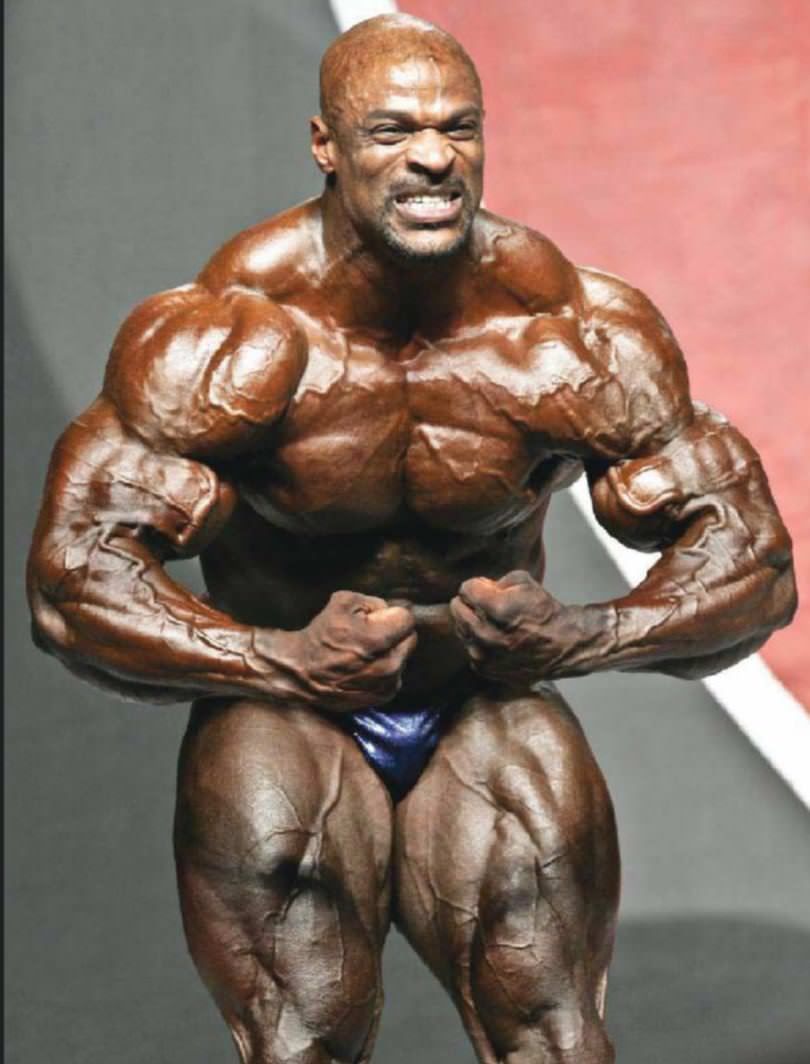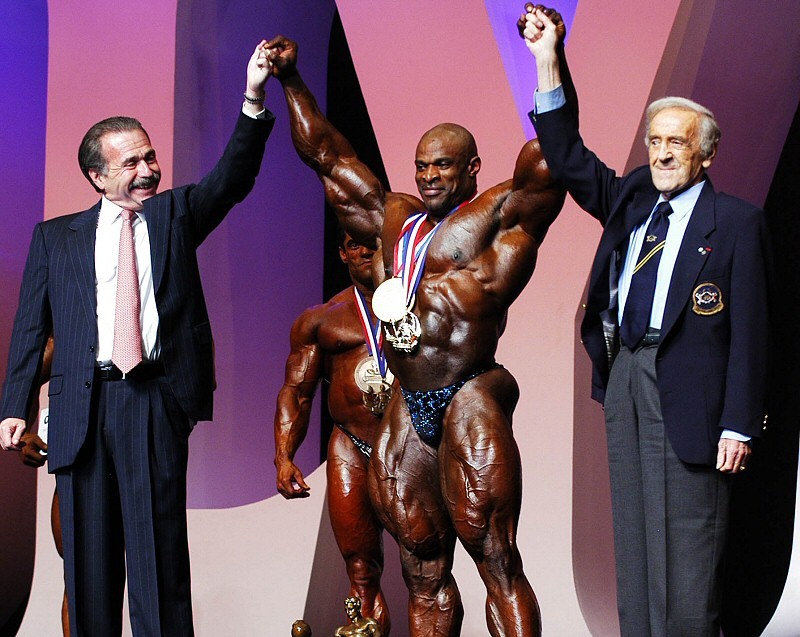There can be no doubt that eight-time Mr. Olympia Champion Ronnie Coleman is a special kind of athlete. But now, he has DNA evidence to back this theory up.
Ronnie Coleman is one of the greatest bodybuilders of all time. This results in people asking questions and wanting to know where this athleticism comes from. He very clearly has strong athletic genes, but what exactly does that mean?

Well, that is the question that the people at MuscleGenes is looking to answer. In 2013, these people did a DNA test on Coleman, to determine what genetic markers he has, that result in such ability. According to Muscular Development, they have released a research paper detailing their findings.
The first thing to look at is Coleman’s specific type of training. There is evidence to suggest that different types of training styles work better for different genetic types. This claim seems to have been backed up by Ronnie’s test results.
According to scientists, the most prominent gene to develop strength and power is ACTN3, which can have three variations. Of these three, Coleman has the one which results in his muscles being more resistant to damage. Research also suggests that people with these genes respond better to a high volume, multi-set resistance training. Additionally, these-gene allows for training more often, with a higher rate of recovery.

However, Coleman seems to have already figured out what works best for him, without the fancy DNA test. He had felt for a long time, that this was the training that gave him the best results. So a scientific backing to that theory only justifies what he was already doing.
MuscleGenes Chief Content Officer Mark Gilbert had this to say about Ronnie Coleman’s test results:
“When we got Ronnie’s results back from the lab, we were hugely satisfied to see that he had exactly the types of results we would have expected.
For people with his gene variants, we recommend the highest volume and the most frequent training sessions. So in fact, Mr. Coleman was probably such a successful bodybuilder at least partly because he learned how to train in a way that was optimal for his genetics.
If you think about it, this is the best explanation for the long-standing controversy over what is the single best way to train.
The reason scientific studies haven’t been able to prove that high-volume is superior to low-volume or vice versa over the last 20+ years is because different people with different gene variants respond to different training loads.”
In addition to the ACTN3 gene, the results of this test also demonstrated that Ronnie Coleman is thermogenic. What this means, is that he has the tendency to burn calories into heat. This process results in a lower fat, due to the body processing calories in a different way than normal people. Subsequently, the gene that causes this is known as UCP2.

This ability for thermogenesis causes Coleman to require a different diet than most athletes. While many people stick to the high protein, low-fat diet, Coleman is required to consume an insane amount of carbs. Additionally, he was already aware of this trend and was already following a high carb diet.
Gilbert explains what these results mean for Coleman, a bit better.
“One of the many things MuscleGenes can test for and advise upon is carb sensitivity. Several of the genes we test determine insulin function, and studies show that people who have poor insulin function have a hard time losing body fat unless they watch their carb intake.
This is true even if they eat a low-calorie diet that would otherwise work for people with good insulin function.
So again, it shouldn’t surprise us to find out that Ronnie’s gene report reveals that he has three of the ideal variants (out of a possible four), which most powerfully predict insulin function (his fourth gene variant is neutral).
This puts him amongst the highest 5-10 percent of subjects we’ve tested for insulin function.”
It is absolutely mind-blowing to see what kinds of things this science is able to tell athletes about their body, and their training. Hopefully, more bodybuilders like Ronnie Coleman will be able to utilize MuscleGenes and discover their own best practices.









